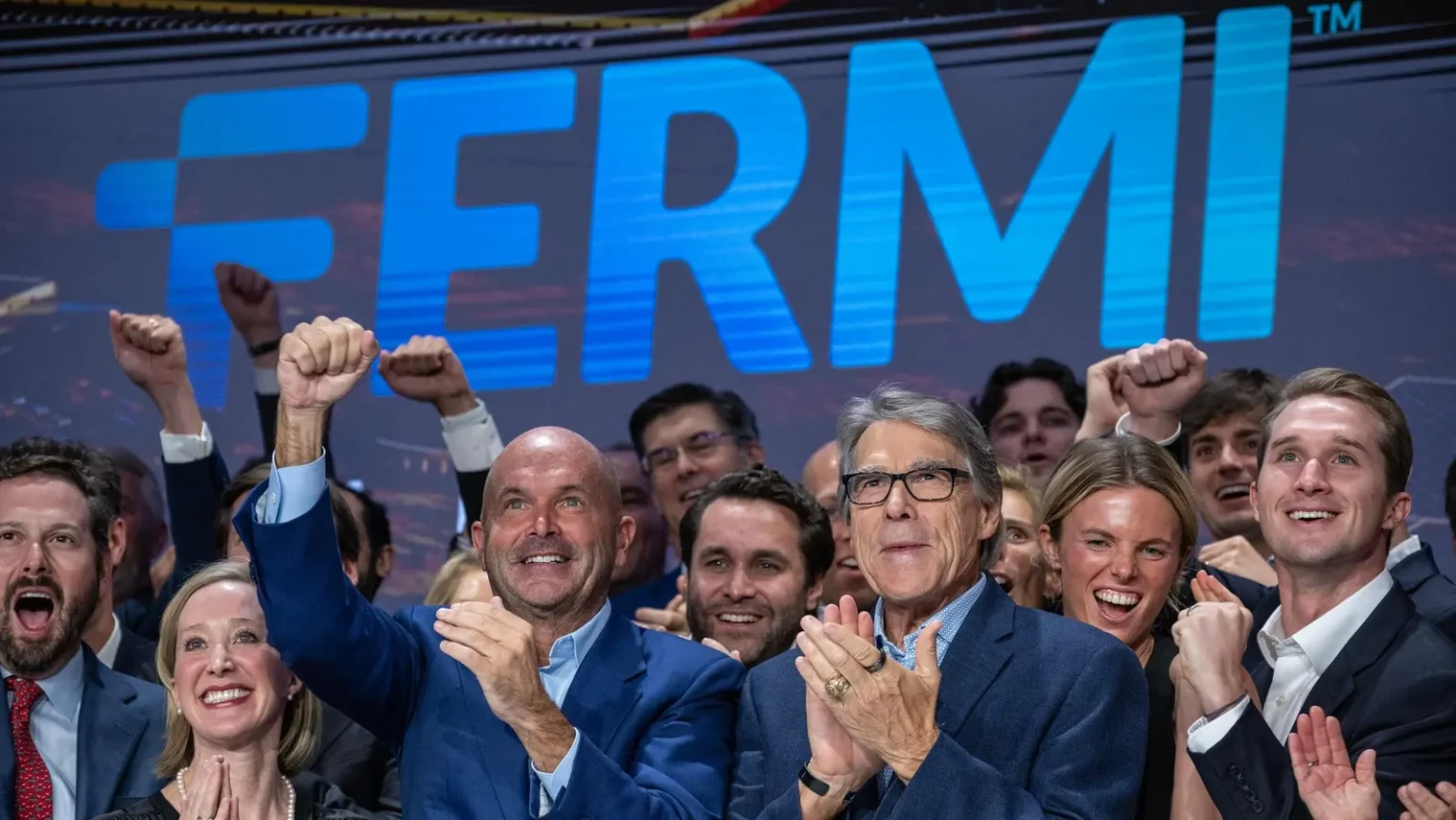The Billionaire Boom Behind Data Center Real Estate
In a remarkable display of investor confidence, Fermi America’s public debut on the Nasdaq has transformed its founders into billionaires overnight, despite the company not having generated any revenue yet. The Texas-based real estate investment trust, cofounded by former energy secretary Rick Perry, saw its stock soar 55% on its first day of trading, closing at $32.53 per share and valuing the nine-month-old firm at a staggering $19 billion. This dramatic market response highlights the growing excitement around infrastructure supporting artificial intelligence, particularly the real estate underpinning data centers.
Toby Neugebauer, Fermi’s 53-year-old president and CEO, emerged as the biggest winner from the IPO. The son of former Texas congressman Randy Neugebauer now holds an estimated 28% stake worth approximately $6 billion, with a significant portion placed in trusts for his wife and two children. Neugebauer’s path to this fortune wasn’t direct – he cofounded Houston-based energy private equity firm Quantum Energy Partners in 1998, later worked at various investment firms, and even launched GloriFi, a controversial “anti-woke” fintech startup that raised $55 million before shutting down and filing for bankruptcy in 2023. Besides his newly minted Fermi fortune, Neugebauer owns part of Major League Soccer’s Austin FC, a 180-foot yacht named Purpose, and a 16,000-square-foot estate nicknamed the “White House of Dallas.”
Griffin Perry, the 42-year-old son of Rick Perry, became the second billionaire from Fermi’s IPO, securing an estimated 11% stake worth $2.3 billion. Unlike his father, the younger Perry doesn’t hold a formal role at Fermi, having built his career in energy investments through Caddis Energy and later as cofounder of Grey Rock Investment Partners, which manages over $1 billion. Interestingly, Grey Rock has integrated environmental, social, and governance considerations into its business decisions – a departure from traditional Republican energy policy. Meanwhile, Rick Perry himself, while not quite reaching billionaire status, now holds a stake worth approximately $540 million – a dramatic increase from Forbes’ 2019 estimate of his net worth at just $3 million during his tenure as energy secretary.
What makes Fermi’s meteoric valuation particularly intriguing is that the company hasn’t earned a single dollar yet – in fact, it lost $6.4 million in its first six months. The firm has no confirmed customers, though it claims to have signed a letter of intent in September with an unnamed “investment grade tenant” for its first gigawatt of power. Fermi’s business centers around a 5,236-acre site in Amarillo, Texas, dubbed “Project Matador,” where it plans to eventually deliver up to 11 gigawatts of energy from natural gas, nuclear, and solar plants. The company holds a 99-year lease on the land, which is owned by Texas Tech University, and believes its ability to bring 1.1 gigawatts online by the end of 2026 will attract tenants requiring near-term access to large-scale energy for AI data centers.
Fermi’s vision has a distinctly political dimension, with the company naming its site the “President Donald J. Trump Advanced Energy and Intelligence Campus.” The company will initially rely on natural gas – similar to other enormous data centers like Musk’s xAI “Colossus” in Memphis – having signed a letter of intent with Siemens Energy to purchase three gas turbines. However, its long-term strategy involves nuclear energy, with plans to collaborate with Siemens on nuclear steam turbines integrated into four Westinghouse nuclear reactors. Perry, a strong nuclear energy advocate, has framed America’s energy development as a race against China, stating: “The Chinese are building 22 nuclear reactors today. America has none. We’re behind—and it’s all hands on deck.”
Fermi will face stiff competition from established data center operators like Coreweave, which counts Microsoft, Meta, and OpenAI among its customers and has seen its stock more than triple since going public in March. However, investors clearly believe in Fermi’s business model and the broader potential of data center infrastructure. The company’s success story illustrates a fascinating intersection of technology, energy policy, and real estate, creating enormous wealth almost instantaneously for its founders. While the long-term viability of Fermi’s ambitious plans remains to be seen, the market’s enthusiastic response demonstrates investors’ bullishness on infrastructure supporting the AI revolution – even when backing ventures with no revenue and only the promise of future returns.


